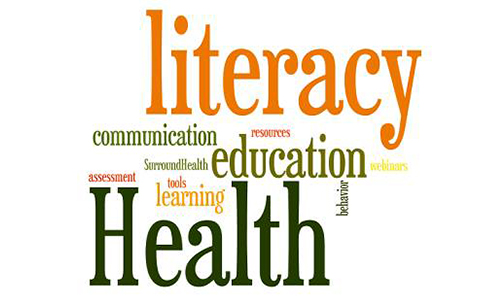Improving health literacy is in pharma’s interests
March 28, 2018
Source: PharmaPhorum
 882
882

Health literacy, or the degree to which individuals have the capacity to obtain, process and understand the basic health information needed to make appropriate health decisions, is low. In England, between 43% and 61% of working-age adults routinely do not understand the health information they are given.
Jonathan Berry, Personalisation and Control Specialist in NHS England’s Person-Centred Care Team, said: “Our system provides oral and written information to patients of such complexity that it far exceeds people’s functional skills in language, literacy and numeracy, and therefore their ability to make sense of it and act on it.” Providing this information in a way that people understand empowers patients, which can only be a good thing for pharma companies.
Business sense
Low health literacy is often associated with poor adherence, and healthcare professionals may see poor adherence as a barrier to prescription in some cases. In the US, where direct-to-consumer pharmaceutical advertising is the norm, people with higher levels of health literacy are more likely to ask their health team about products they have seen marketed.
While no direct comparison can be made with the UK’s more tightly-regulated market, we know that those who are more engaged in their healthcare are more aware of the available treatments. Put simply, informed, empowered patients make better consumers of medication. And, globally, pharma is taking action.
Global initiatives
Merck, Pfizer and GlaxoSmithKline, among others, have publicly stated their commitment to improving health literacy and making health information easier to understand. Pfizer said in a statement: “It is a crisis of understanding medical information more than a problem of access to information.
“Patients and families who struggle to understand health information have a difficult time following medical recommendations and are at greater risk for health problems – which, in turn, has a negative effect on health outcomes and the entire healthcare system.”
Last year, The Novartis Foundation launched the Better Hearts, Better Cities initiative, currently being piloted in Brazil, Mongolia and Senegal. It aims to reduce the incidence of cardiovascular disease in low- and middle-income countries through a multi-agency programme of hypertension prevention, management and control. Astellas has updated its health literacy standards and committed to making all future patient-facing materials better reflect the needs of the people who need them.
Change is possible
“Easy-to-understand materials help patients and their caregivers recognise what they need to know and do, such as obtaining the care they need and following medical advice accurately, so that treatment is both therapeutically effective and cost-effective,” said the company’s executive director of Patient Experience in the USA, Doug Noland.
For a person to be at the centre of their own care, they need to be an empowered manager of their own treatment – they need to be willing and comfortable, states the Patient Information Forum (PiF):
“Such an empowered patient will have sufficient health literacy… to be able to engage with information materials [and] be able to understand the implications of their condition and the treatment options.
“Accessible, trustworthy information and the encouragement to use it are the key,” the organisation said in the report Knowledge is Power, published last year.
And with pharma working with advocacy groups and healthcare systems to produce this information, improved health literacy is not out of reach.
By DduRead more on
- Disposable Medical Products that Keep Your Medical Facility Clean and Sterile March 31, 2022
- 10 Triumphant Drug Launches Of The Decade August 26, 2021
- Ultrasonic Nebulizer Market Views September 6, 2018
- 4 Best-Selling Digital Thermometers on Drugdu.com in 2018 September 5, 2018
- Don’t Miss These Tips before Your Cardiac Monitor Purchase September 5, 2018
your submission has already been received.
OK
Subscribe
Please enter a valid Email address!
Submit
The most relevant industry news & insight will be sent to you every two weeks.



